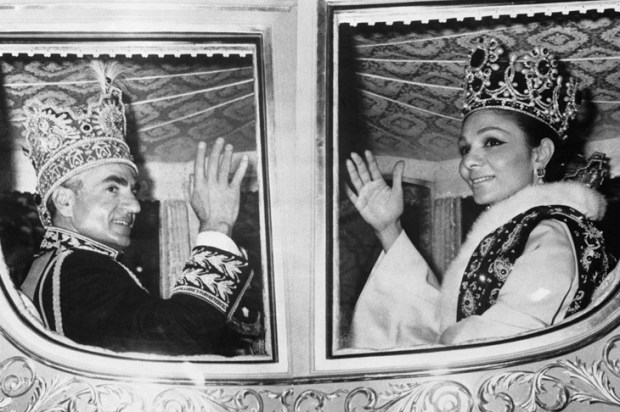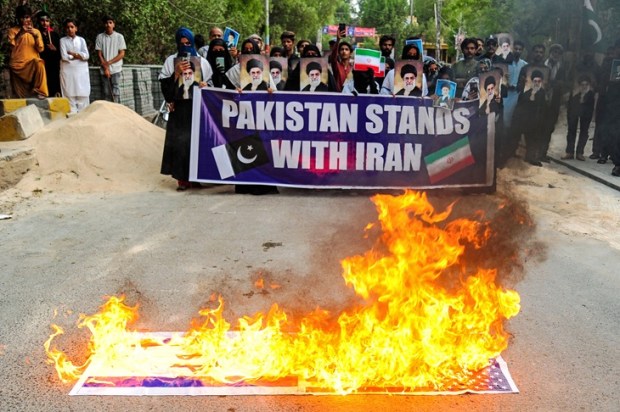For more than four decades, the people of Iran have not seen diplomatic behaviour based on national interests and the usual rules of diplomacy from the representatives of the Islamic Republic on the international stage. This is while during the Pahlavi era, Iranian diplomats like Amir-Abbas Hoveyda spoke in global forums with a language of dialogue, logic, and defense of Iran’s cultural, civilisational, and political status.
The important question is: How was the Western world able to accept, after the 1979 insurrection in Iran, figures mostly born from an ideological, anti-Western, and even terrorist discourse, as the official representatives of Iran, replacing the previous diplomats?
To understand the importance of this critical question, I will present some historical facts.
One of the earliest actions of the Islamic regime was the takeover of the US Embassy in Tehran, an act that not only violated all diplomatic principles but also led to the complete cut-off of clear and proper political relations between Iran and the United States. However, over time, the West recognised this terrorist regime and accepted its representatives at the United Nations, as if the hostage-taking and clear violation of diplomatic norms were forgotten and hostage-taking of officials and diplomats became a normal event.
The Islamic Republic has repeatedly used its diplomatic institutions abroad to suppress and assassinate opponents. A clear example is the assassination of Shapour Bakhtiar (the interim Prime Minister before Ayatollah Khomeini’s leadership) in Paris in 1991 and the Mykonos case in Germany, where the German court explicitly ruled that senior officials of the Islamic Republic, including Ali Khamenei and Ali Fallahian, had ordered these assassinations. Nevertheless, political relations with the Islamic Republic continued.
In 2018, Assadollah Asadi, an official diplomat of the Islamic Republic at the Iranian embassy in Vienna, was arrested and convicted in Belgium for planning a bombing at the National Council of Resistance of Iran’s gathering in Paris. It is believed this was the first time a formal diplomat of the Islamic Republic was directly involved in planning a terrorist attack.
Still, this incident did not change the Western world’s structural view of the regime’s representation.
On another matter of concern we have Ahmad Sadeghi, the Ambassador of the Islamic Republic in Australia. In an official statement dated March 29, 2024, he referred to Yahya Sinwar, the leader of Hamas, accused of orchestrating the October 7, 2023 attack on Israeli civilians as a ‘great personality’ and supported him. Later, in another tweet, he wrote:
‘However, his path in the struggle against the oppression and occupation of the criminal Zionist regime will continue to have many followers. Undoubtedly, the path of this blessed martyr in the struggle against the tyrants and oppressors of the time will endure and bear fruit, and the vile entity of the Zionist regime will not remain triumphant or complacent from this crime.’
This is not only a breach of diplomatic norms and the neutrality expected from an Ambassador’s public stance but also a clear ideological and provocative position. These statements violate diplomatic protocols and openly promote violence against another country.
These examples clearly show that the diplomats of the Islamic Republic neither understand nor adhere to well-known diplomatic principles but have turned Iranian embassies into bases for promoting religious ideology, insulting host countries, and in the case of a few individuals, even organising violent actions. Yet, the Western world continues to recognise these figures as Iran’s representatives under pretexts like maintaining communication channels or economic interests.
Comparing this situation to the Pahlavi era, when Iranian representatives appeared on the world stage with cultural, literary, and political dignity, reveals a bitter truth: the painful fall of Iran’s international credibility. More than ever, there is a need to redefine Iran’s place in the world not based on ideology, but on national interests, wisdom, and respect for human and universal principles.
In this path, the victory of Iran’s national movement led by Prince Reza Pahlavi is not only a significant step toward restoring the dignity, freedom, and true representation of the Iranian people but also a promise for a brighter, more balanced, and more humane world. Iran’s return to its rightful place in the world will not only restore hope to the Iranian people but also remind the international community that peace and civilization have always been allied with the Iranian people and culture.
Leila Naseri: Author | Composer | Social Monarchist Activist

























